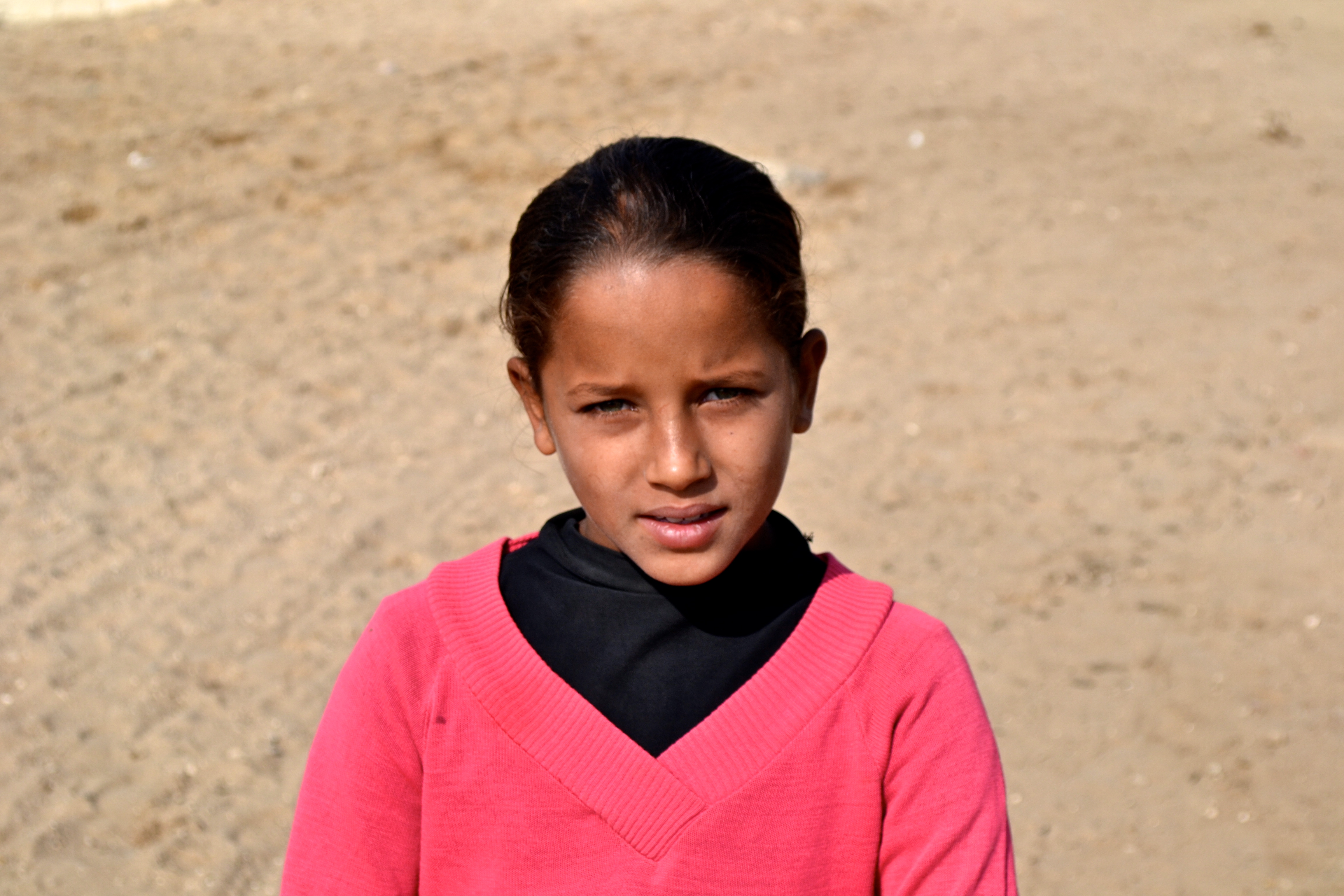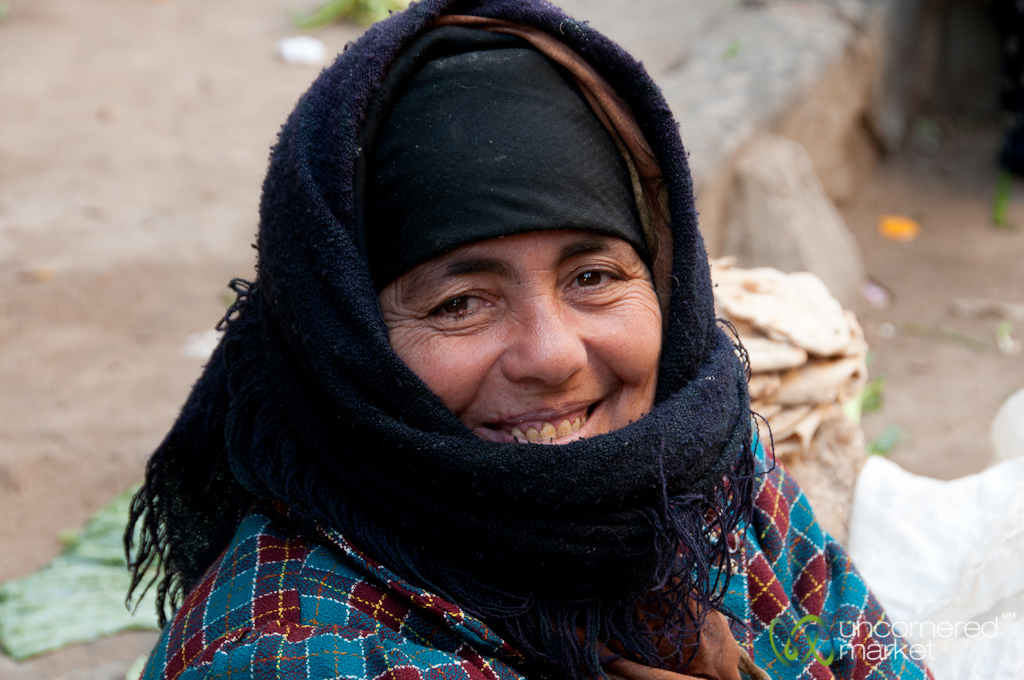By Arwa Gaballa from Aswat Masriya
Women are the main breadwinners in as many as 30 percent of Egyptian households, a role frowned on by conservative Egyptian society but increasingly important in a country plunged into dire economic straits by the turbulent politics of the post-Mubarak era.
Many of them are poor, illiterate and lacking experience of formal employment, and are forced into menial work in the informal economy, doing poorly paid jobs with no insurance or pension and involving exposure to the public gaze that attracts the disapproval of neighbours.
“Things were difficult before the uprising too, with those in power robbing us, but at least the little we had was enough to live on,” said Zeinab Abdel Fattah, 64. “Now we have nothing. Life has become unbearable.”
Abdel Fattah, who has a family of eight, leaves her home every morning at 6 a.m. for the city centre. Sitting cross-legged on a platform in the heart of Cairo, she sells eggs, eggplants and cottage cheese to passersby, but often returns empty-handed.
“No one buys anything anymore,” she said.
A Thomson Reuters Foundation poll of gender experts found Egypt to be the worst country in the Arab world to be a woman, due to endemic sexual harassment, a surge in trafficking, high rates of female genital mutilation and a rollback of freedoms since the revolution.
Egypt scored badly on work-related issues, too. Gender-based discrimination affects many women in the workplace and is rarely punished, respondents said.
While many Egyptian women have to work because their husbands died or divorced or abandoned them, others, like Abdel Fattah, support their family because their husband’s pension is small or his work is irregular or unstable.
“My husband was only a worker before he retired; he can’t read, you see. Now his pension is 500 Egyptian pounds ($72.57), which is not enough to feed us.”
Mona Ezzat of the New Woman Foundation, an advocacy group, said that while official data estimate 16 percent of Egyptian breadwinners are women, independent sources put the figure as high as 30 percent.
“Because the majority of these women are impoverished and thus are mostly illiterate and have no skills or experience, they resort to the informal economy, cleaning houses, street vending and so on,” she said.
The problem with working in the informal economy is that these women are not entitled to pensions or health or social insurance, and they are often exposed to physical and psychological violence that they cannot challenge, as they enjoy no legal protection.

Even if Abdel Fattah’s thin grey hair weren’t showing beneath her worn-out headscarf, the wrinkles on her tired face, her missing teeth and rough, dirty hands were evidence of the difficult life she leads.
Like her husband, Abdel Fattah cannot read or write, but all her children can.
“My six children can read. Some of my children even went to university!” she said proudly with a big smile. “That was when things were easier, before they got this bad.”
The New Woman Foundation’s Ezzat said: “The struggles of breadwinners have worsened as Egypt’s economy deteriorated.” She added that there is no real plan for economic growth, as can be seen from the increase in the number of street vendors struggling to scrape a living.
The economy grew by 7 percent a year in the period leading to the popular uprising that toppled Hosni Mubarak in 2011 — part of the Arab Spring that swept North Africa — but has since slowed sharply because of the collapse of tourism and the fall in foreign investment.
GDP growth last year was only 2.1 percent, down from 2.2 percent in 2011, the state news agency reported earlier this month — worryingly low for a country whose population of 85 million suffers from high unemployment and is expected to reach 100 million by 2030.
Price rises have put many goods beyond the reach of average households, and this has led the government to draw up a plan to distribute basic supplies at subsidized prices.
Social Pressure
In Abdel Fattah’s case, her already grinding burden is made worse by her neighbours’ criticism of her for working at her age, “as if it was by choice”.
“They think there is a lot of money in what I do,” she laughed, adding that her neighbours mock her for having to work when she has six grown-up children.
Ezzat explains that the way female breadwinners are viewed and treated in Egypt is a psychological burden, especially as many of them live in poor areas which tend to be more conservative and more critical.
Female breadwinners are often criticised for spending too much time outside their home without a male figure around, a cultural judgment that is not limited to poor neighbourhoods, Ezzat said.
Neighbourly criticism and social pressure often force these women either to take their sons out of school and send them off to work in their place, or to marry off their daughters quickly to shift the responsibility for earning the family income to their husbands.
“The sons are deprived of getting an education and the daughters are married off before their time,” Ezzat said.

‘Ana Hunna’ Campaign
Rights activists and women’s rights organizations in the Middle East posted their thoughts on female breadwinners in a Twitter campaign on Saturday.
Hundreds of activists around the Middle East joined the online debate, using the hashtags “#Loqmet3ish” and “#anahunna”. The first hashtag, Loqmet3ish, means “a piece of bread”, an Arabic phrase used widely to describe making a living.
The campaign, organized by Ana Hunna (I Am Here), said that women are the main supporters of 33 percent of Egyptian households and families.
“Despite the fact that norms (are) transforming in Egypt, women are still generally defined as dependants and subordinate to men,” Ana Hunna posted on its account.
Ana Hunna started out in 2011 as an online campaign to empower working women, but gradually expanded and now aspires to become an actual initiative, one of the organizers, Esraa Saleh, told Aswat Masriya.
The campaign used to depend on making films to raise awareness of the need for gender equality in employment, but it is now looking for more activities that could have a greater impact on the ground, Saleh said.
“If we (female breadwinners) decide to not work for just one week, this society will be paralyzed,” Rana Allam wrote on Twitter.
“It’s time we recognized Arab women; the real heroes of our generation,” said Hebbah Hussein, another participant in the campaign. “Mothers and breadwinners will shape Egypt’s future.”
To follow Arwa Gaballa, the author of this piece, on Twitter click here.
This content was provided to Egyptian Streets by Aswat Masriya.







Comments (12)
Reblogged this on Ned Hamson Second Line View of the News.
Reblogged this on Oyia Brown.